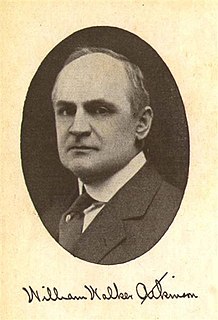A Quote by Plato
'But surely "blind" is just how you would describe men who have no true knowledge of reality, and no clear standard in their mind to refer to, as a painter refers to his model, and which they can study closely before they start laying down rules about what is fair or right or good where they are needed, or maintaining, as Guardians, any rules that already exist.'
'Yes, blind is just about what they are'
Related Quotes
Nobody is made anything by hearing of rules, or laying them up in his memory; practice must settle the habit of doing, without reflecting on the rule; and you may as well hope to make a good painter, or musician, extempore, by a lecture and instruction in the arts of music and painting, as a coherent thinker, or a strict reasoner, by a set of rules, showing him wherein right reasoning consists.
Because your brain uses information from the areas around the blind spot to make a reasonable guess about what the blind spot would see if only it weren't blind, and then your brain fills in the scene with this information. That's right, it invents things, creates things, makes stuff up! It doesn't consult you about this, doesn't seek your approval. It just makes its best guess about the nature of the missing information and proceeds to fill in the scene.
The good thing about rules is if you have to do an interview, and you make some rules for that interview, like, "I can only ask him about five years of his life or her life," it narrows down your story. It's the same thing with acting. In my profession, if I say, "These are the rules for this character," all of the sudden, you create life.
Success is not to be gained by a blind and slavish following of anyone's rules or advice, our own any more than any other person's. There is no royal road to success- no patent process by which the unsuccessful are to be magically transformed. . . . Rules and advice may greatly assist-and they undoubtedly do this-but the real work must be accomplished by the individual. He or she must carve out his or her own destiny.
I thought if I followed the rules, things would turn out all right. that's the thing about the cure, isn't it? It isn't just about deliria at all. It's about order. A path for everyone. You just have to follow it and everything will be okay. That's what the DFA is about. That's what I belevied in-what I've had to believe in. Because otherwise, it's just...chaos.
We hated Bauhaus. It was a bad time in architecture. They just didn’t have any talent. All they had were rules. Even for knives and forks they created rules. Picasso would never have accepted rules. The house is like a machine? No! The mechanical is ugly. The rule is the worst thing. You just want to break it.
In my own field, x-ray crystallography, we used to work out the structure of minerals by various dodges which we never bothered to write down, we just used them. Then Linus Pauling came along to the laboratory, saw what we were doing and wrote out what we now call Pauling's Rules. We had all been using Pauling's Rules for about three or four years before Pauling told us what the rules were.










































